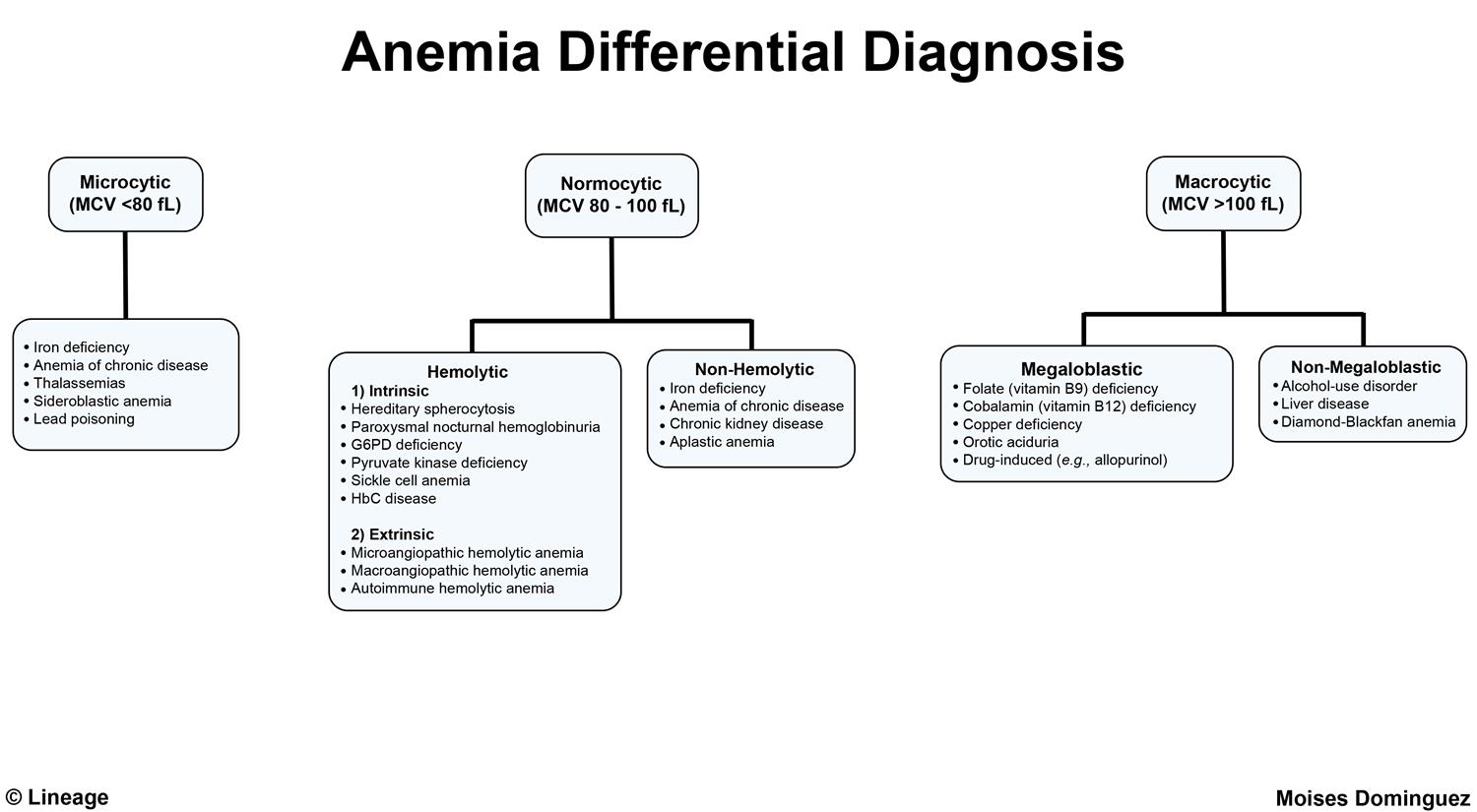This is how the AI article summary could look. Lorem ipsum dolor sit amet, consectetur adipiscing elit, sed do eiusmod tempor incididunt ut labore et dolore magna aliqua. Ut enim ad minim veniam, quis nostrud exercitation ullamco laboris nisi ut aliquip ex ea commodo consequat.
A normal haemoglobin (‘Hb’) level

- 130-170 g/L for a man
- 110-150 g/L for a woman.
Note. So a normal haemoglobin (‘Hb’) is different for a man and woman – i.e. a Hb of 120 g/L is anaemia for a man, but normal for a woman.
What is haemoglobin?
Haemoglobin is an iron-rich protein in red blood cells that carries oxygen from the lungs to the body’s tissues. It also removes carbon dioxide from the body.
What is Hb used to measure?
The Hb reflects the number of red cells (which carry oxygen) in the blood; a higher number means more red cells.
So. What does a low or high Hb mean?
- A low haemoglobin is called anaemia
- A high haemoglobin is called polycythaemia.
Red cell size – mean cell volume (MCV)
Anaemias are described (initially) by the MCV (mean cell volume, i.e. size of the red cells).
Normal MCV is 80-100 fL.
Classification of causes of anaemia
Anaemia is not a diagnosis. It is a syndrome with many causes, which can be broadly be divided into these 5 groups (as shown in the diagram below)
- Microcytic (small red cells) – iron deficiency (bleeding until otherwise proven, especially GI and uterine)
- Normocytic (normal sized red cells)
- Haemolytic – e.g. sickle cell disease, thalassaemia
- Non-haemolytic – e.g. anaemia of chronic disease (such as CKD)
- Macrocytic (large red cells)
- Megaloblastic – e.g. B12/folate deficiency
- Non-megaloblastic – e.g. alcohol use.


